On October 12, 2018, the National Hispanic Media Coalition hosted a Hispanic Heritage Month event, “Connecting Disconnected Communities: Insights on Building Networks and Policy Recommendations,” to celebrate Latinx changemakers who are generating innovative connectivity solutions. Federal Communications Commissioner (FCC) Jessica Rosenworcel provided keynote remarks. She reflected on her Judeo-Spanish heritage and the value of public service, explaining why her story is an American story. The Commissioner poignantly stated that “so much of what we create in the future from commerce to culture will find expression in computer code.” Thus, is it imperative that the Commission hear from minority voices, especially on issues related to media diversity and expanding access to technology all Americans.
The program included video testimonials from Eddie Garcia and Jorge Narvaez, imploring policymakers and advocates to keep working towards universal internet access. As Google’s Chanelle Hardy stated, whether it is telling stories, running businesses, getting an education, or making new friends, the internet has made things that used to be impossible possible. That is why NHMC continues to work for an open internet, defend the Lifeline program for low-income families, and advocate for media inclusion and diversity.
Roxanna Barboza highlighted obstacles for residents in California’s Central Valley. She shared a personal story about how her brother had to type his college essays onto an iPhone’s app to send it as a text message for a friend in another town with internet access to submit his homework assignments online. Barboza also reflected on her parents’ sacrifice, namely when her father used to have to take every other Friday off from work to drive her and her siblings to Bakersfield, a town 46 miles South, to use the internet for homework assignments. Even though Central Valley is now able to provide students with access to computer labs and has also begun to incorporate technology into the curriculum, these actions are not enough. Barboza made several recommendations for citizens, state administrators, and the FCC. As Barboza stated, “I am not an exception of the hidden talent in our rural communities. I am an example of what is possible.”
A panel of experts made a presentation on their work building wifi networks in Detroit, New York, Nicaragua, and Kenya. They also described the policies required to replicate those success stories in other communities.
Nyasia Valdez is the Digital Steward trainer at the Detroit Community Technology Project. Her organization builds technology networks so that their communities have tools for storytelling. It also helps foster understanding, trust, and empathy among residents. Specifically, Valdez discussed the Equitable Internet Initiative which ensures that Detroit residents have the ability to leverage online access for social and economic development.
Yamil Lora is the Community WiFi Coordinator at THE POINT, is dedicated to youth development and the cultural and economic revitalization of the Hunts Point section of the South Bronx. In 2017, the organization launched a mesh network that provides free wifi to the community in addition to serving as a backup communications network in the event of an emergency. Lora expressed the need for policy makers to recognize communities that are already resilient. Communities need technological diversity, new network models based on digital stewardship, and community leaders into the decision-making process.
Edwin Reed-Sanchez is the Founder at SayCel, consults governments and other groups that need communications infrastructure. SayCel specializes in building wifi networks in remote communities and also finds ways to reuse dark fiber fiber. Reed-Sanchez designed a fiber optic network in Nicaragua and developed one of its first emergency call response networks. He stated that there will always be market failures in connectivity. Those are opportunities to ask questions and invest in skills such as networking, prototyping, and programming.
Teresa Basilio Gaztambide is the Director at Resilient Just Technologies, a community organizing and technology project aimed at leveraging media, communications, political education, and decentralized technologies for immediate use by organizers. Her organization advocates for digital rights by promoting telecom networks based on universal access, equity, and community ownership. Basilio Gaztambide described the need for local control over network infrastructure, governance, and design, which would help address concerns related to privacy, surveillance, and maintenance costs.
